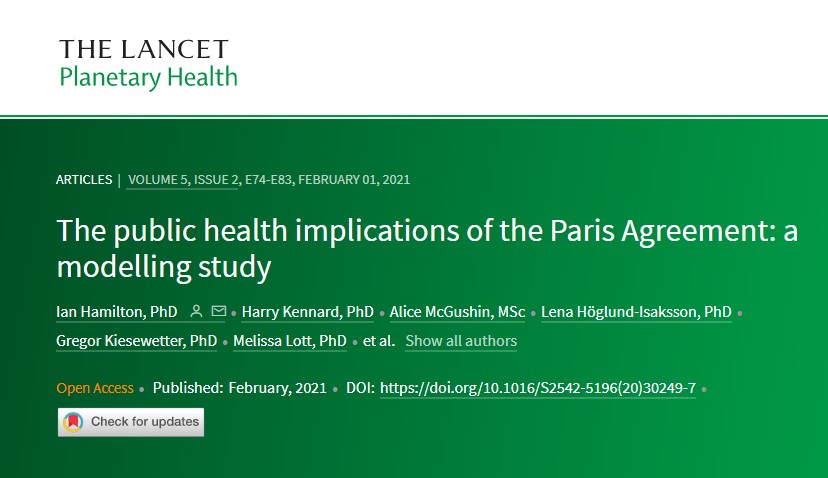Background
Nationally determined contributions (NDCs) serve to meet the goals of the Paris Agreement of staying “well below 2°C”, which could also yield substantial health co-benefits in the process. However, existing NDC commitments are inadequate to achieve this goal. Placing health as a key focus of the NDCs could present an opportunity to increase ambition and realise health co-benefits. We modelled scenarios to analyse the health co-benefits of NDCs for the year 2040 for nine representative countries (ie, Brazil, China, Germany, India, Indonesia, Nigeria, South Africa, the UK, and the USA) that were selected for their contribution to global greenhouse gas emissions and their global or regional influence.
Findings
Compared with the current pathways scenario, the sustainable pathways scenario resulted in an annual reduction of 1·18 million air pollution-related deaths, 5·86 million diet-related deaths, and 1·15 million deaths due to physical inactivity, across the nine countries, by 2040. Adopting the more ambitious health in all climate policies scenario would result in a further reduction of 462 000 annual deaths attributable to air pollution, 572 000 annual deaths attributable to diet, and 943 000 annual deaths attributable to physical inactivity. These benefits were attributable to the mitigation of direct greenhouse gas emissions and the commensurate actions that reduce exposure to harmful pollutants, as well as improved diets and safe physical activity.






